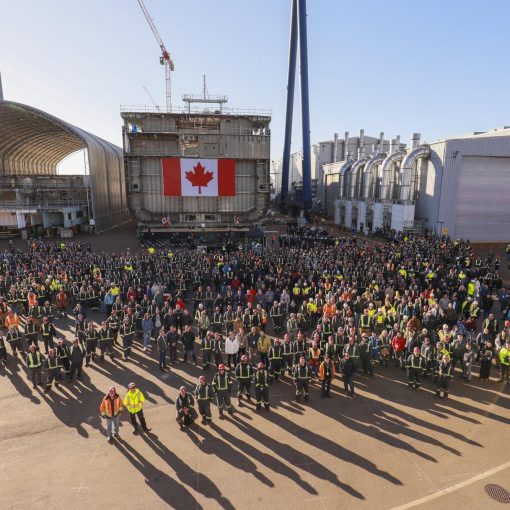The announcement on the evening of Friday, August 22, 2008 of the cancellation of the JSS procurement should have been no surprise to any observer of naval and military affairs. The proposed ships were too innovative and too complex to succeed in the Canadian political and military environment. In a sense the JSS fell just as similar procurements in the past have collapsed: the Avro Arrow, the Bobcat armoured personnel carrier and the fast hydrofoil project.
It is not a time for mourning but rather a time to provide a common sense solution that meets the needs of Canada, the Canada First Defence Strategy, and the Canadian navy. The first task is to obtain a sustainable fleet oiler and supply ship class that can be at sea by 2012-2014 to replace the Protecteur-class. The new ships must be double-hulled tankers that meet international environmental standards as the old Protecteur and Preserver are single hulled. The ships should be equipped to receive, refuel and dispatch helicopters for vertical replenishment and other missions. The ships must have a capacity to carry spare parts, ammunition and refrigerated cargo along with aviation and marine fuel. There must be underway replenishment equipment. The provision of army sealift and humanitarian support should be left out of this class and an alternative solution be sought.
For the new AOR, the easiest solution is to follow the lead of the Royal Australian Navy. You may recall the Australians purchased the tanker MV Delos new from a Greek shipping company in 2004 for about US $50,000,000. She is a double hulled diesel powered tanker with a full load capacity of about 40,000 tons. For another $50,000,000 the Australians added, in their own shipyard, a large flight deck for a helicopter, replenishment at sea gear and control facilities, and a container deck for storage of spare parts, ammunition and refrigerated cargo. The ship was commissioned in September 2006 [as HMAS Sirius]. Besides being a model acquisition that solved an urgent operational need.
Interestingly, Delos was one of four sister ships. In my opinion Canada should purchase the remaining ships of the class, license the Australian design for the modifications and get Canadian shipyards to work. The whole program, after inflation, should cost somewhere around $300-500,000,000 Canadian dollars. If the Canadian government and Canadian Forces are serious about working in the Indian Ocean, Western Pacific and the Caribbean Sea or the Northwest Atlantic then it is a time to move forward.
For the army and humanitarian support operations the solution is slightly more complex but not difficult to achieve. The Royal Netherlands Navy has developed an acceptable LPD design that has spawned solutions for both the Royal Navy and the Spanish Navy. The Rotterdam-class can provide over the shore, alongside and helicopter delivery of troops, vehicles and cargo. These ships can also be configured for command, medical and humanitarian support. The Dutch have one ship configured for the transport and delivery of combat forces and a second ship designed to provide command, army logistics and medical support. These flexible ships can readily support humanitarian operations. Canada should license the design and build two ships in Canadian yards. These should be ready by 2015 and be cost effective; provided, we do not try to redesign them and stretch the design to achieve something different.


